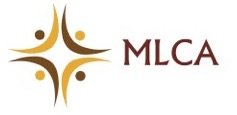Calls for Research Participants
Several people have reached out with requests to help find participants for their research. Please find proposals below and be in touch with the researchers with any questions.
From Robin Snyder-Drummond, past president of MLCA and IBCLC in private practice in Maine:
I've made a survey with questions about insurance coverage for Lactation Consultant services. It's based on the survey that was published in Clinical Lactation in 2017. I will compare these answers to the original study. I would like this to go to families in all parts of MA. Please feel free to forward the information to clients and other IBCLCs.
Here's the link:
https://forms.gle/4o8qvq22hwiRQdns9
This will be an article, not a controlled study. I also welcome your insights about what has changed in MA since 2017 that has helped or hindered insurance coverage/payment for services.
Though it would be good to know more about coverage during COVID-19 quarantine, I added only two short questions about that mostly because that's a fairly new situation that could be delved into in another survey.
Please forward this link to families you know who live in MA and have contacted IBCLCs about services from 2017 to present. Let me know if you have any trouble with this link or have questions.
Robin@birthready.com
From UMASS Amherst. Screening tool for early detection of breast cancer. Nationwide:
We are researchers at the University of Massachusetts Amherst who are conducting a funded study of the cells in breastmilk with the goal of developing a screen for early detection of breast cancer and a tool for individual assessment of breast cancer risk.
We have two target populations in the project: high-risk asymptomatic women who are nursing, and have tested positive for a pathogenic BRCA variant (mutation), and any lactating women (regardless of BRCA status) who have a post-partum diagnosis of breast cancer, OR are undergoing a biopsy. The latter group will establish a reference cancer profile. This is necessary because the study participants who are asymptomatic BRCA-carriers are likely to seek mastectomies after completing their families to avoid cancer development.
We are reaching out to you because we hope you would be willing to help us in getting the word out about our study to women who are breastfeeding and have these issues.
We are hunkered down right now because of the Corona virus but the timings across the country are going to vary, and we are reaching out now in anticipation that this will pass. We would be able to handle samples from cancer cases whenever they occur.
If have questions about the study, please contact us directly or visit our website (BreastmilkResearch.org).
We would be happy to provide informational materials.We thank you for considering our request and trust you stay safe.
Kathleen Arcaro, PhD
karcaro@umass.edu
413-577-1823
Brian Pentecost, PhD
bpentecost@umass.edu
Also from UMASS Amherst. Diet related. Must be local:
We are conducting a clinical trial to determine the effects of a diet that includes 8 – 10 daily servings of fruits and vegetables – outcome measures include cytokine levels in breastmilk, DNA methylation in breast milk cells, and maternal weight. For this study women need to live within 25 miles of Amherst MA.
Kathleen
Arcaro, PhD
karcaro@umass.edu
413-577-1823
Brian
Pentecost, PhD
bpentecost@umass.edu
[/et_pb_text][/et_pb_column][/et_pb_row][/et_pb_section]
